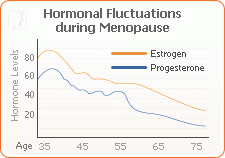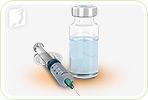Almost every woman will experience mood swings during menopause to some degree. Mood swings can become problematic due to their intensity and frequency, and oftentimes because they are difficult to control. In order to deal with mood swings effectively, it is important to understand their causes and how to treat them. Read on to learn more about how to manage mood swings.
What Are Mood Swings?

Mood swings are abrupt and frequent changes in mood. They can often be unpredictable and hard to control. During mood swings, women may not know why they are suddenly switching from sad to angry or how to manage these constant changes in emotional state, especially if they happen at work or home.
There are many factors that can upset a woman's emotional stability, and it's best to understand these in detail in order to successfully cope with mood swings during menopause.
What Causes Mood Swings?
The causes of mood swings during menopause can be divided into two main categories: psychological and physical causes. However, it's generally accepted that physical causes are primarily responsible for mood swings during this stage of life.
Psychological Causes
Psychological causes are grouped into two areas; those that relate to long-term psychiatric disorders and those that relate to acute stress. Psychiatric disorders are chronic diseases brought on by a chemical imbalance in the brain. The second group of mood swing triggers are related to daily stress and fatigue that can cause people to become emotionally unstable. These conditions can exacerbate mood swings, but physical causes are much more common during menopause.
Physical Causes

Hormones like estrogen and progesterone directly impact your mental state because they influence serotonin levels in the brain. Serotonin is the chemical that manipulates mood and humor. If serotonin levels decrease, your mood worsens, and if serotonin increases, your mood improves. Therefore, mood swings occur when levels of serotonin and reproductive hormones are not controlled properly, and this commonly happens during menopause.
Imbalanced hormonal levels are the most common cause for mood swings during the stage of menopause, and there are a variety of safe and effective treatments. These include:
- Lifestyle changes
- Alternative medicine
- Medications and surgery
The safest way is to start with the least risky approaches, which are lifestyle changes and herbal supplements, before trying more invasive treatments. For more information on mood swings and how to treat them, follow the links below.
Sources
- Amin, Zenab, Turhan Canli, and C. Neill Epperson. "Effects of Estrogen-Serotonin Interactions on Mood and Cognition". Behav Cogn Neurosci Rev 2005; 4; 43.
- Dr. Love, Susan, and Karen Lindsey. Dr. Susan Love's Menopause and Hormone Book. New York: Three Rivers Press, 2003.
- Molecular Psychiatry. (n.d)."Estrogen Promotes Gender Difference in Brain's Response to Stress".Retrieved from www.psycheducation.org.
- The Health Center.(n.d)."Adult Mood Swings".Retrieved from www.thehealthcenter.info.



